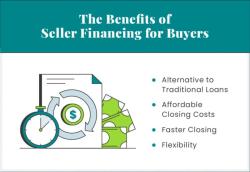What makes a home FHA eligible?
For a home to be eligible for an FHA (Federal Housing Administration) loan, it must meet certain requirements set by the FHA. These requirements are designed to ensure that the home is safe and habitable for the borrower. Here are the key factors that make a home FHA eligible:
Occupancy: FHA loans are primarily intended for owner-occupied properties. This means that you, as the borrower, must intend to live in the home as your primary residence. FHA loans are not typically available for investment properties or vacation homes.
Property Type: FHA loans can be used to purchase a variety of property types, including single-family homes, condominiums, townhouses, and some multi-unit properties (up to four units). The property must meet local zoning and building codes.
Property Condition: The property should meet minimum property standards (MPS) set by the FHA. These standards are designed to ensure the safety and livability of the home. Common requirements include functioning heating and cooling systems, a sound roof, safe electrical and plumbing systems, and adequate structural integrity. A professional home inspection is often required to assess the property's condition.
Appraisal: An FHA-approved appraiser will assess the property's value and condition. If the appraiser identifies issues that do not meet FHA standards, these issues may need to be addressed before the loan can be approved.
Debt-to-Income Ratio: FHA loans have specific debt-to-income (DTI) ratio requirements. Your DTI ratio is the percentage of your gross monthly income that goes toward paying debts, including your mortgage. FHA typically requires a DTI ratio of 43% or less, although some lenders may be more flexible.
Credit Score: While FHA loans are known for being more lenient with credit requirements compared to conventional loans, you will still need a reasonable credit history. Most FHA lenders prefer borrowers with a credit score of at least 580 to qualify for a 3.5% down payment. If your credit score is lower, you may still qualify but with a higher down payment requirement.
Down Payment: FHA loans typically require a down payment of 3.5% of the purchase price. However, if your credit score is below a certain threshold, the required down payment may be higher.
Mortgage Insurance: FHA loans require mortgage insurance premiums (MIP), which protect the lender in case of borrower default. MIP is typically paid as part of your monthly mortgage payment.
Income and Employment: You must have a stable source of income and employment to qualify for an FHA loan. Lenders will typically require proof of income and employment history.
Legal Status: You must be a legal resident or citizen of the United States to qualify for an FHA loan.
It's essential to work with an FHA-approved lender who can guide you through the qualification process and provide specific eligibility requirements based on your financial situation and the property you intend to purchase. FHA loan requirements may change over time, so it's important to stay informed about the latest guidelines and policies.












